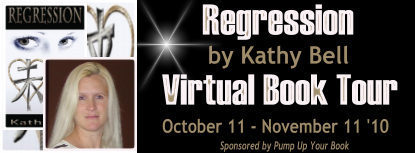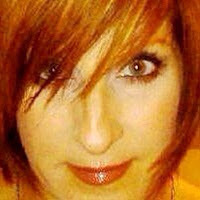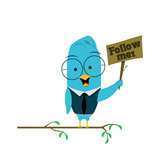Chris Kelly's Blog, page 4
October 8, 2010
Using a Strong Female Protagonist - Kathy Bell
I guess I should start my discussion with a definition of the strong protagonist. She is someone who already has the skills and abilities required to solve whatever problem the author is going to throw at her during the story. She is a woman with a sense of self and purpose. She has brains, perhaps even brawn, and does not hesitate to use it.
You walk a fine line when using an already well-skilled protagonist in any story, and possibly stand to alienate some readers. But, even more worrisome than this issue is the possible loss of a story arc – that of character development. By character development, I mean the learning and growing type of development rather than the slow and steady revelation of the character traits of your main characters. The more competent your main character is to begin with, the less opportunity you have to teach her new skills.
Think of Sarah Connor at the beginning of Terminator. She is unassuming, very feminine, and physically fairly weak. During the story she develops into the woman who will train the leader of the future rebellion. Half of the movie would not have happened if she had been a fully prepared character. So, you must ask yourself, does your character need to be fully developed at the start, or can she learn some of her skills as she goes along?
There are two approaches which accommodate the use of a truly capable heroine. Science fiction lends itself to plot-driven stories anyway, and so often the stories populated with strong female characters are those of that genre. When a story is focused on the dramatic action, there is less of a need to 'train' your heroine, and more emphasis on the scenes taking place. If you are an action oriented writer who knows exactly where your story is going before you have even created characters to populate it, then the strong heroine will likely fit well into the story.
Another approach you can use with the well-equipped lead is to place her in a completely untenable position where all of her skills are of little use for, or even detrimental to, the realization of her objectives. For example, in my own story the main character is very skilled and capable because she has actually relived her life a number of times and is able to unconsciously call upon those memories for use in her current life. (Apparently I wasn't quite obvious enough with that fact, because a few readers took a real dislike to the MC because of her skills, without getting the idea that she developed them through multiple lifetimes)). Even with all of that to call upon, she must give up the family that is dear to her heart because her skills and abilities are needed to save the world. In this case, her strength actually works against her goal of returning to the life she had lived before, and (I hoped) made the sacrifice that much more poignant.
In closing, I think the strong protagonist –female or otherwise – works well in a plot-driven novel but should perhaps be toned down in a story emphasizing character development because you will lose readership if your character begins the story with few flaws and thus has little distance to go to reach her objectives. If things come easy, there is no story to tell!
Kathy Bell's debut novel, Regression became an Amazon Bestseller in Science Fiction and Fantasy as a new release, peaking at #17 on that list and remaining in the top 100 for 28 days. The sequel, Evolussion has just come out and is already receiving rave reviews from early readers. Find Kathy on Twitter @kathybellauthor, on Facebook , or at the Infinion Series website. Follow her blog tour


You walk a fine line when using an already well-skilled protagonist in any story, and possibly stand to alienate some readers. But, even more worrisome than this issue is the possible loss of a story arc – that of character development. By character development, I mean the learning and growing type of development rather than the slow and steady revelation of the character traits of your main characters. The more competent your main character is to begin with, the less opportunity you have to teach her new skills.
Think of Sarah Connor at the beginning of Terminator. She is unassuming, very feminine, and physically fairly weak. During the story she develops into the woman who will train the leader of the future rebellion. Half of the movie would not have happened if she had been a fully prepared character. So, you must ask yourself, does your character need to be fully developed at the start, or can she learn some of her skills as she goes along?
There are two approaches which accommodate the use of a truly capable heroine. Science fiction lends itself to plot-driven stories anyway, and so often the stories populated with strong female characters are those of that genre. When a story is focused on the dramatic action, there is less of a need to 'train' your heroine, and more emphasis on the scenes taking place. If you are an action oriented writer who knows exactly where your story is going before you have even created characters to populate it, then the strong heroine will likely fit well into the story.
Another approach you can use with the well-equipped lead is to place her in a completely untenable position where all of her skills are of little use for, or even detrimental to, the realization of her objectives. For example, in my own story the main character is very skilled and capable because she has actually relived her life a number of times and is able to unconsciously call upon those memories for use in her current life. (Apparently I wasn't quite obvious enough with that fact, because a few readers took a real dislike to the MC because of her skills, without getting the idea that she developed them through multiple lifetimes)). Even with all of that to call upon, she must give up the family that is dear to her heart because her skills and abilities are needed to save the world. In this case, her strength actually works against her goal of returning to the life she had lived before, and (I hoped) made the sacrifice that much more poignant.
In closing, I think the strong protagonist –female or otherwise – works well in a plot-driven novel but should perhaps be toned down in a story emphasizing character development because you will lose readership if your character begins the story with few flaws and thus has little distance to go to reach her objectives. If things come easy, there is no story to tell!
Kathy Bell's debut novel, Regression became an Amazon Bestseller in Science Fiction and Fantasy as a new release, peaking at #17 on that list and remaining in the top 100 for 28 days. The sequel, Evolussion has just come out and is already receiving rave reviews from early readers. Find Kathy on Twitter @kathybellauthor, on Facebook , or at the Infinion Series website. Follow her blog tour

Published on October 08, 2010 11:14
October 6, 2010
The Writer's Hustle - Rachel Thompson
We are writers.
We write.
We sit at our desks—for some that may be a beautiful antique mahogany beast that grandpa used when he started his insurance business some one hundred years ago. For others it may be the Macbook they carry into their baby's room while she naps, and for others it may be the good old pen and paper that writers have used for centuries.
While the process of writing has not changed, how you get your words out there has changed so monumentally that even as I write this, PR firms are closing, publishing houses are restructuring, and editors are questioning the job security they've enjoyed all these many years.
And why? Social media, baby.
Q: What is social media and why should we as writers even care about it? I imagine you are asking yourself the same questions I asked myself about one year ago—what does Twitter have to do with my story? How does A—my book—have anything to do with T—Twitter?
A: Everything.
Let me break it down for you.
· As of June 2010, about 65 million tweets are posted each day, equaling about 750 tweets sent each second, according to Twitter records (Wikipedia, 2010).
· Twitter is about networking at its most basic level. Everyone in the writing business is on Twitter. Editors, publishers, writers. Here's but one of many examples of a Twitter success story.
· Twitter is a perfect format to post writing samples. What I mean is not only can you use your 140 characters (really 120—more on that in a minute) to be witty, pithy and wise, you can tweet out a shortened link (more on that also) to your blog or website* where people can get a good feel of your writing style. *Don't have a blog or website? You should. It's free and easy. Check out Blogger or Wordpress, the most popular blogging formats.
· Regardless of whether you publish independently or the traditional route, you need to start marketing your book NOW. Social media allows you to do that. Publishing houses no longer have the money to give you the big push; independent booksellers depend on you to fill the stores. The onus is on you to market yourself.
So how do you start?
Twitter is easy, free, and is an excellent marketing tool. Many people are somewhat confounded by it however, due to the character limitations. First off, you really don't have 140 characters if you have any hope of someone retweeting (RT) you (120 is standard for RTs), so as a writer Twitter is an excellent challenge. Newbie tip: Using bit.ly or tiny.url to ALWAYS shorten your links helps immensely in meeting the 120 character minimum.
Here are my suggestions:
· Join Twitter with a cool, easily remembered name that relates to who you are as an author. Mine is @RachelintheOC. This easily cements not only my name but also my location in the world.

· Brand yourself up front. Use a picture of yourself. People want to know who you are. If you stick up a pic of your eye or a car, they don't get the warm and fuzzies. Then, most importantly, stick with that picture. If you keep rotating your pic, you keep rotating your brand. Get it?
· Make it a goal to reach 2,000 followers within two months of joining Twitter. That's considered the industry standard and is easily attainable if you know how.**
· Pick three words that describe who you are as a writer. Yep, just three. Then write your tweets around those three concepts. If you're all over the place, people will have a hard time identifying what you represent and will unfollow you. Every unfollow is a potential lost reader of your future book!
For example, my three words are Mancode, coffee, and parenting humor. The Mancode is something I started writing about earlier this year and has become by far my most popular subject in both my blog posts and tweets. My very first Mancode post, Men are from Seinfeld, Women are from Friends has been RT'd over 180 times with over 30 comments and innumerable tweet responses. The interest garnered from this subject has led me to start writing a Mancode memoir.
Point is, people now come to my Tweet stream and blog for my Mancode humor. If I start talking about say, the political situation in China, that might be a problem for me and my over 4,000 Twitter followers could drop like flies.
· Join writer's groups! I cannot stress this enough. Get yourself out there. Use your genre as a starting point.

· Learn how to tweet. Sounds simple but it's true. There is a Twitter culture that you need to learn, especially for writers. Gawk for awhile, get up to speed with what other writers are doing, learn about lists, hashtags, shortened links, retweets, and more. Become informed.
· I'm a founding member of @IndieBookIBC aka the IndieBookCollective which is a super resource for any writer, already published or new to the industry, to learn how to get your book published without the middleman. We can teach you more of the techniques learned above in a FREE webinar workshop** format starting in mid-October! Our workshop schedule will be posted on our website and on our stream so check us out and sign up.
· Our founding members @WritingNoDrama and @kaitnolan are indie published (except for myself—I'm at the WIP stage) and bring a wealth of resources to the table. We have guest posts weekly from an array of writers that have been out there, forging their path in the indie world. We're also working with editors and publishers to help you have the most up-to-date info and resources.
· Why join our collective? I myself have gone from 600 targeted followers to over 4,000 since March using the same techniques we're teaching you and I prune my stream weekly. My blog hits have gone from 80 to over 2,000/month. I'm building my fan base while I write my book.
I won't lie to you. Building a social media platform takes work. It's not hard work though, and clearly the payoff can result in dollars in your pocket when your book comes out. Following = fan base = readers.
Don't kid yourself--if you're going the traditional route, agents will look at your Twitter stream and blog to see what kind of following you have. Indie booksellers want to know what you bring to the table and expect you to fill signings. If you can't answer these questions, you have a real problem. But one that we can help you solve.
Your writing is what gets you noticed, but your hustle is what will sell books.
Contact me at @RachelintheOC or at @IndiebookIBC and I'll be happy to talk with you further.
You can make Twitter work for you. I have.
BIO: Rachel Thompson is hard at work on her memoir The Mancode: A Survivor's Tale based on her eighteen-year marriage. When she's not tweeting, she's chasing her two kids around, searching for coffee, or attempting to enjoy a vodka martini--dirty, extra olives. Based on the fact that Rachel is a pale redhead living in a sea of blondes in Orange County, CA, and that she doesn't drive a luxury car or have a plastic surgeon on speed dial, she's waiting for her pink slip any day now.
You should follow her on Twitter at @RachelintheOC or @IndieBookIBC. You can also find her blog at RachelintheOC.com. She's also on Facebook.
Published on October 06, 2010 17:37



